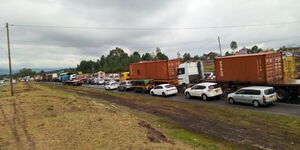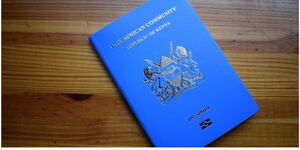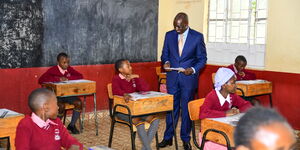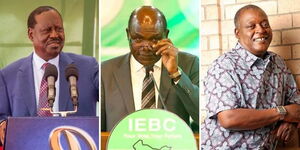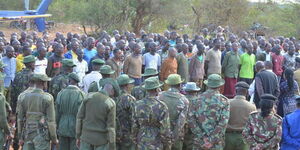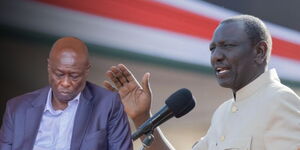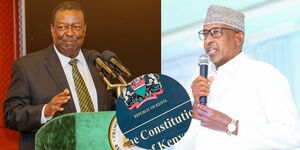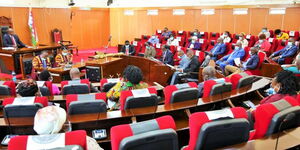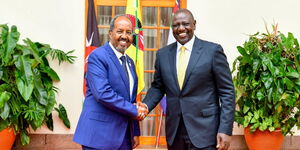Nakuru Governor Lee Kinyanjui on Saturday, February 22, hit out at a section of leaders over remarks they made during the Narok edition of the Building Bridges Initiatives (BBI) rally.
The event was held at the newly christened William ole Ntimama Stadium and presided over by ODM leader Raila Odinga.
Kinyanjui criticised a section of leaders who made addresses at the event, stating that they had it all wrong with their pronouncements on land ownership, further noting that their utterances were inciteful.
"Utterances attributed to a section of leaders during the Narok BBI meeting in relation to non-indigenous landowners and reclaiming land across three counties is retrogressive and ill-informed," Kinyanjui stated.
The pronouncements by leaders at the forum had been sparked by remarks made by Narok Senator Ledama ole Kina, who had alleged that the Maa community had its land encroached into or in other instances, taken from them.
Making an address during the rally, Kakamega Senator Cleophas Malala referenced the Maa land as a piece of meat belonging to the community, stating that there was no need for the rest of the country to try and take it from them.
The Nakuru Governor criticised their remarks, arguing that every Kenyan had the right to own land anywhere in the country as long as it was acquired legally.
"The right to ownership of property is guaranteed by the constitution and not a gift from politicians. The days of ethnic mobilisation through incitement are long gone," Kinyanjui asserted.
"It is most unfortunate that such sentiments come at a time when the nation is seeking to heal the wounds of intolerance and political incitement," he added.
Kinyanjui stated that he was disappointed at the narrative driven by a section of leaders at the rally, terming it divisive. He proclaimed that the BBI should be used to unite Kenyans rather than create a rift.
"We are also concerned about leaders who are seeking to hijack the BBI to pursue selfish political agenda that may cause ethnic disharmony. This has led to deliberate distortions to the BBI concept of national inclusion and harmony," Kinyanjui stated.
"We shall not be party to any associations that seek to create a wedge between communities that have lived in harmony for generations," he pronounced.
Making an address earlier in the day, political analyst Herman Manyora backed Ledama ole Kina's agenda on Maa land ownership, arguing that the country was sitting on a ticking bomb.
Manyora alleged that there were foreigners owning huge tracts of land, in the Maa community yet pastoralists' animals starved to death during droughts.
"I support Senator Ledama in his concern about the Maa people. They have been wronged in this country for over 100 years, perhaps more than any other community in this country," Manyora stated.
"They have been dispossessed of their lands. Their community has been separated. Tracts of their land have been taken away. The Samburu people have been forced to watch their animals die, while foreigners sit on thousands of acres of fertile land, all in the name of the conservancy.
"We are sitting on a ticking bomb. As we continue to ride on the willing seller willing buyer thing, and the Maa loses their land. A time will come when the Maasai youth jobless, all their land sold by their fathers who did not understand the intricacies of the importance of land," he pronounced.
Manyora stated that the willing buyer willing seller policy should not be employed in Maasai land, when the intricacies of land ownership, land tenure is not clear.
"We are therefore creating a time bomb. We must put this to a stop, or at least hold a conversation on how to treat Maasai land," Manyora argued.
Kinyanjui questioned this whole argument, stating that it was more divisive and not tailored towards national cohesion.

